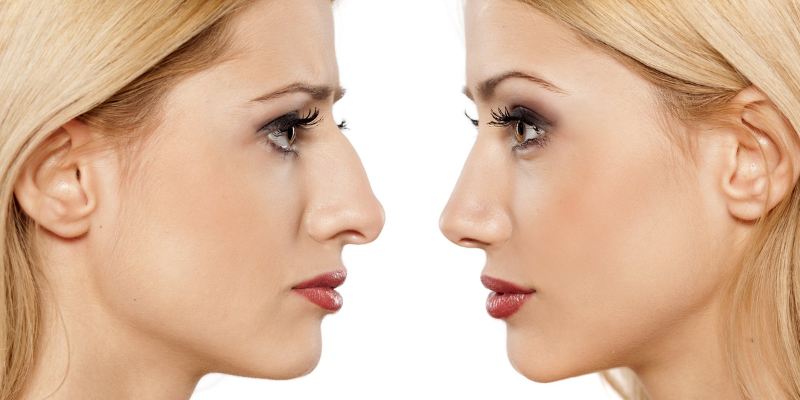How Long Does It Take To Recover From Rhinoplasty?
How long does it take to recover from rhinoplasty? You may be excited to see the results of your nose reshaping (rhinoplasty) right away, but it takes time to heal. During this time, there are things you can do to speed up the healing process and make sure everything gets better.
On average, it takes one year to heal from rhinoplasty. That may sound like a long time, but when you break it down into steps, it’s much easier to handle. You can take off the splint on your nose and go out in public without showing any signs of surgery, unless you have bruises around your eyes. This could take two weeks to figure out. It is safe to go about your daily life again.
At 2 weeks, most of the facial swelling should have gone down and most of the bruises should be gone. After 3–4 weeks, you can safely return to cardio exercises like jogging, swimming, and cycling. After 6 weeks your bones are stable, and you can go back to doing resistance exercises (like lifting weights), wearing glasses, and blowing your nose.
Between 3 and 6 months, the tingling and strange feelings in your nose and nasal skin should go away.
How Long Does It Take To Recover From Rhinoplasty On Average?
First and foremost, you should do what your doctor tells you to do. You could read 100 articles like this one about how to recover from rhinoplasty, but none of them would be as helpful as what your facial plastic surgeon will tell you. You will be told exactly what medicines to take and when to take them.
From the outside, your plastic surgeon will be able to see how your nose job recovery is going, but only you will know how you feel. Listen to what your body is telling you, and if something doesn’t feel right after surgery, talk to your doctor right away. Not only is it uncomfortable to sleep on your side after rhinoplasty, but it can also make your recovery take longer by causing more bruising and swelling. Even scarier, it can make your nose move. To keep this from happening, you’ll need to sleep with your head up for 6 weeks after surgery. Putting your head up on two or three pillows or a foam wedge is one of the easiest ways to do this. You can also sleep well in a recliner.
Rhinoplasty Aftercare Tips
If you tend to move around in your sleep, you can keep your head still with a travel pillow or rolled-up towels around you. A cold pack can help reduce swelling in the first 72 hours after surgery. Just make sure not to put the compress on your nose directly. Instead, put it on your cheeks so you don’t move any bones or cartilage by accident. What does eating your veggies have to do with getting better after getting your nose fixed? A lot, to be exact. By giving your body the nutrients it needs to heal itself, a healthy diet after surgery can help you get better faster.
Skin, muscle, cartilage, and blood all need protein to grow and stay healthy. You’ll also want to make sure you’re getting enough vitamins, especially Vitamin A and Vitamin C. Vitamin C is an important part of making collagen, which is a protein that holds your skin cells together. Citrus fruits, Brussels sprouts, and broccoli are all good places to get Vitamin C.
Avoid Hot Foods
Even though they feel good, steamy showers, hot bowls of soup, and relaxing saunas are not so good for your swollen nose. Heat will make the tissues in your nose swell even more, so it’s best to eat cool and room-temperature foods, take lukewarm showers, and stay out of the heat in the weeks after your nose reshaping procedure.
You will have congestion for a few weeks or maybe even a few months after surgery. This is because the tissues in your nose are swollen. Don’t blow your nose. Instead, talk to your doctor about using a saline nasal spray to gently moisten your nasal passages until the swelling goes down. After 6 weeks, you’ll be able to blow your nose again.
How about a sneeze? You can’t just choose not to sneeze. Instead of sneezing through your nose, try sneezing through your mouth.
Stop Wearing Eyeglasses
After surgery, it takes most people about 6 weeks for the bones in their nose to heal. During this time, you shouldn’t do anything too hard. Even movements like stretching, lifting, or bending over can make your nose swell up.
Your facial plastic surgeon will tell you when you can put on your glasses again. Switch to contacts if you can until then. If you can’t, wear the lightest frames you can find and only when you have to. The splint that was on your nose after surgery will be given to you by our staff. If you have to wear glasses, you can put this on your nose under them. Protecting your skin from too much sun is always a good idea, but it’s especially important after a nose job.


